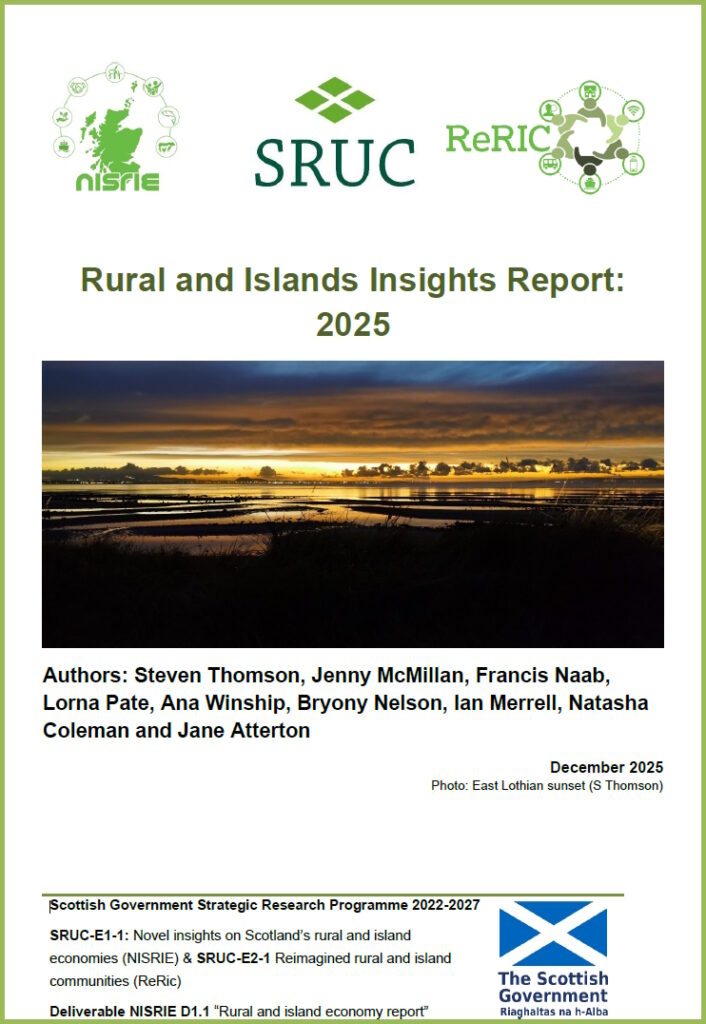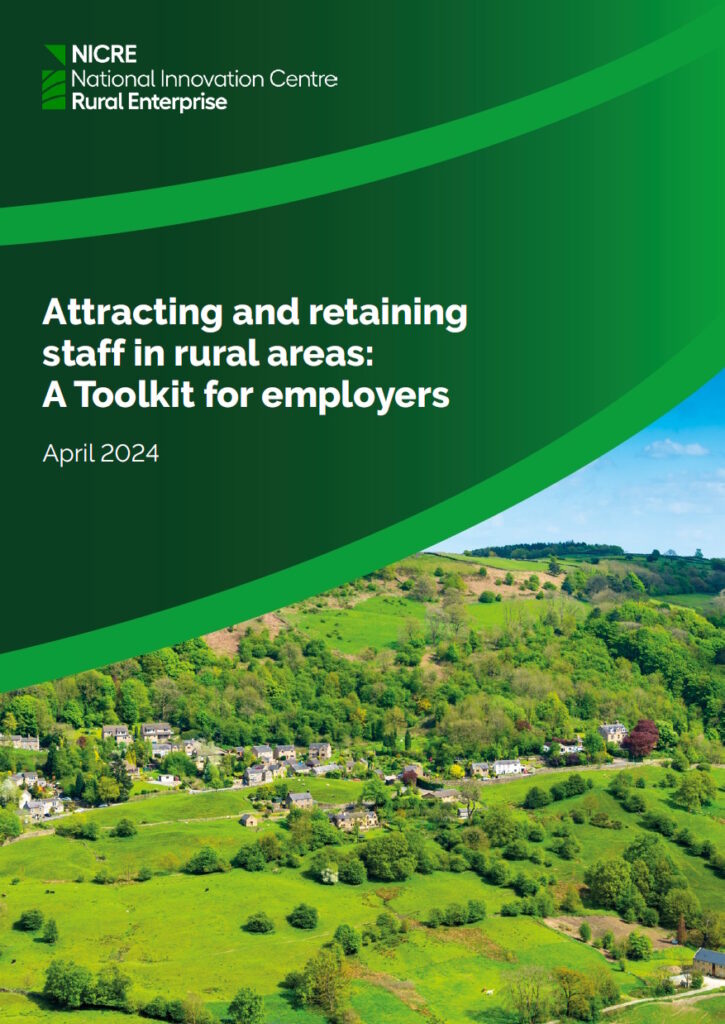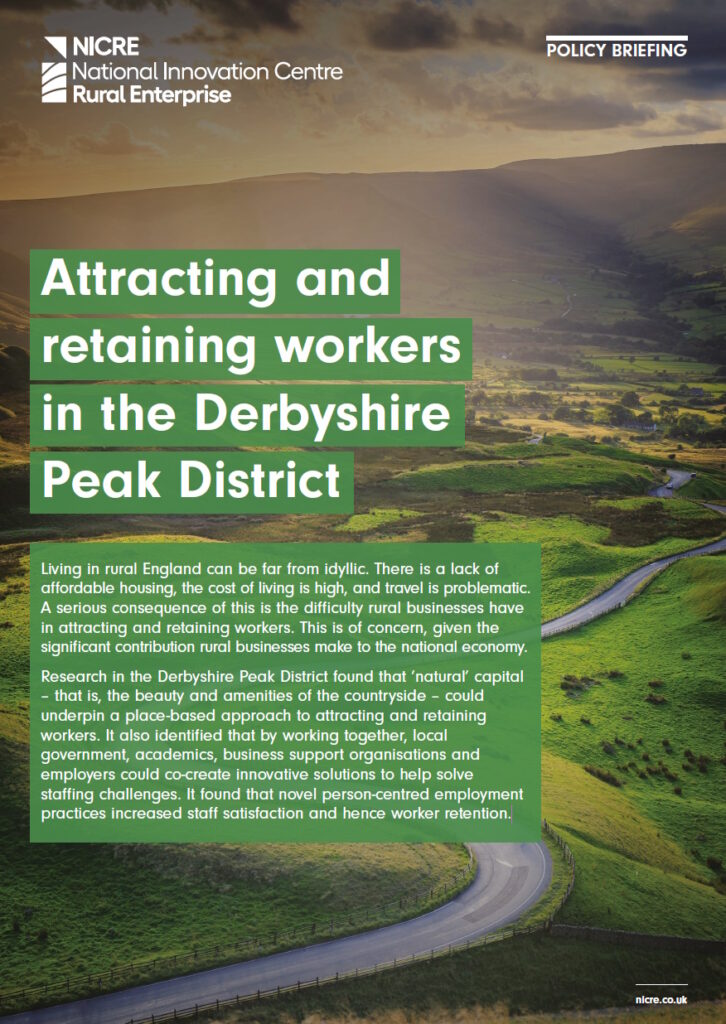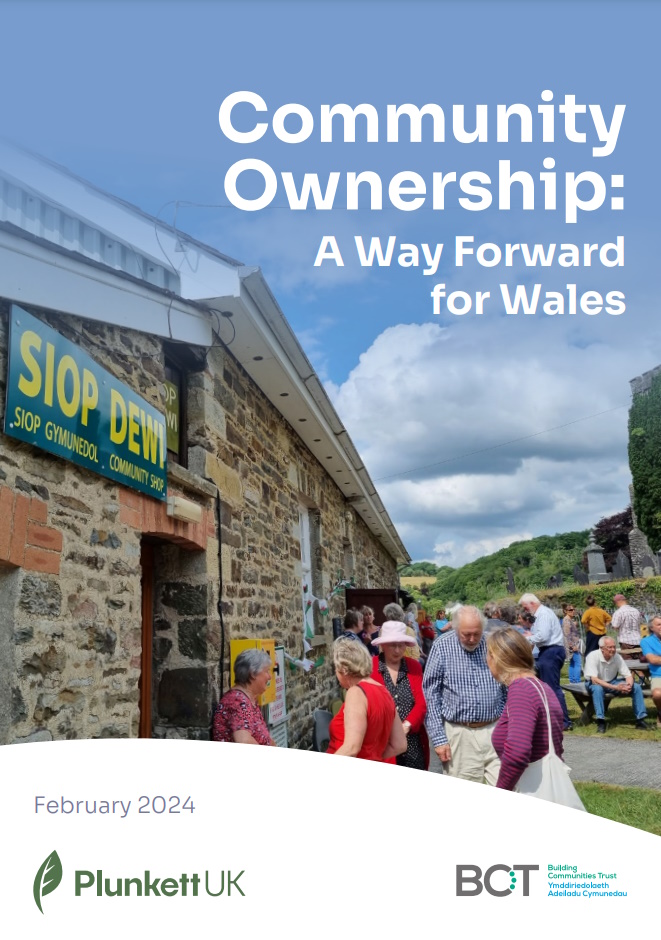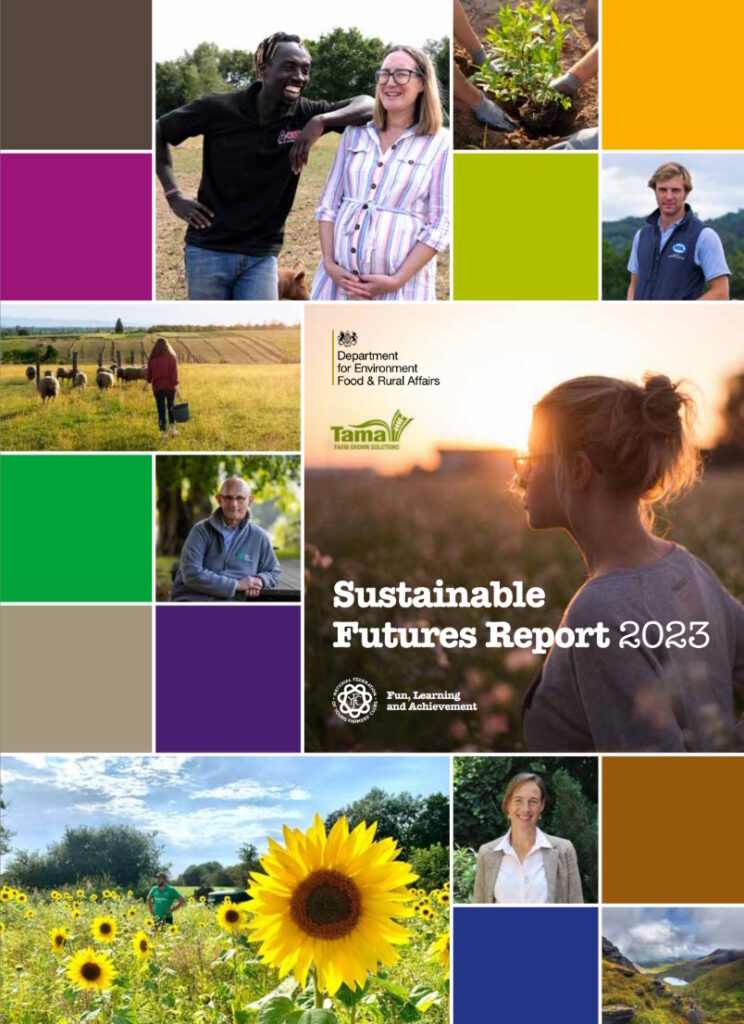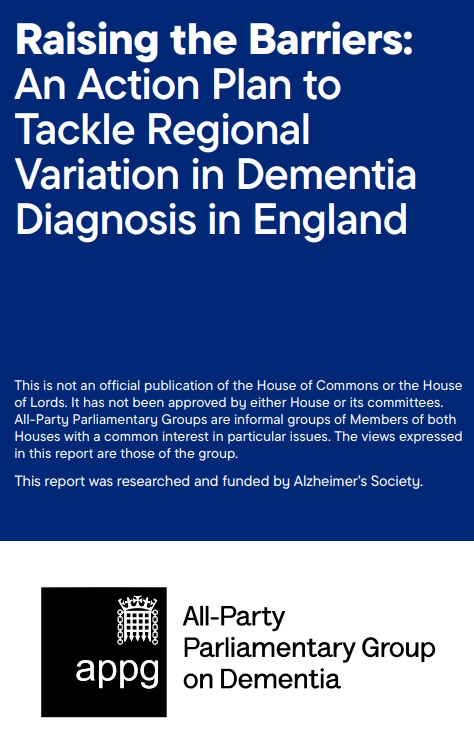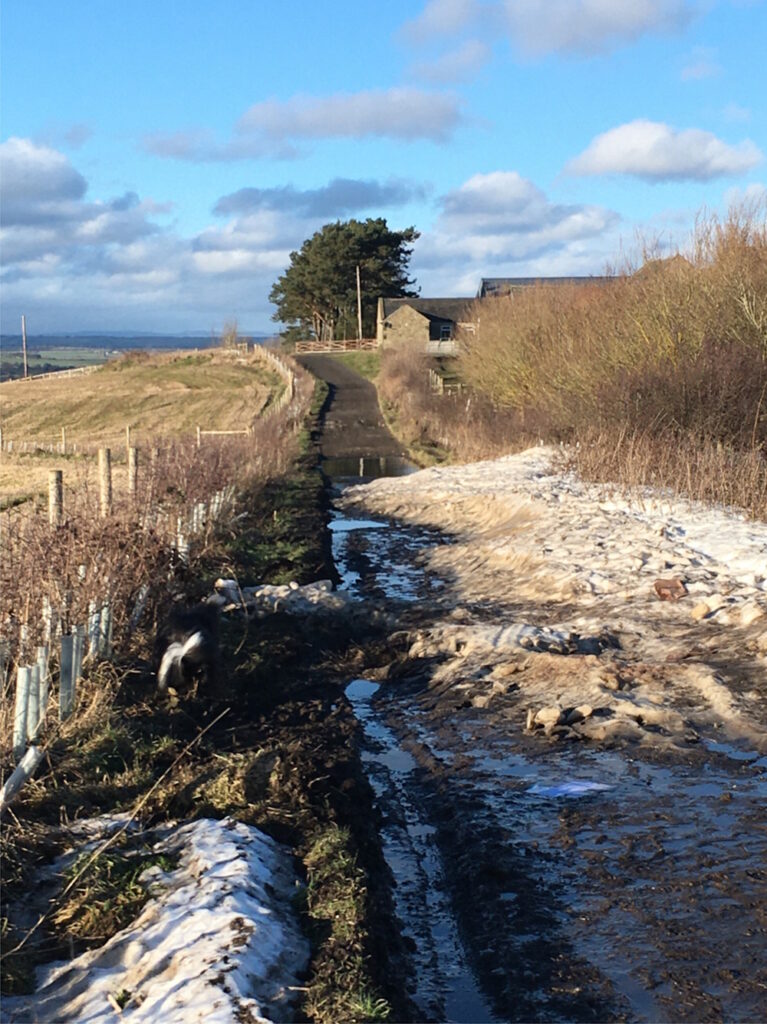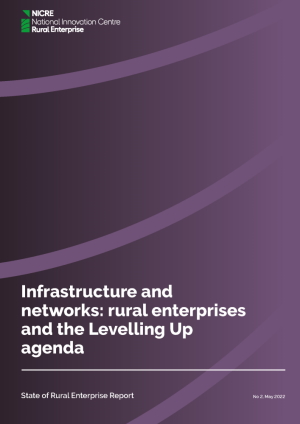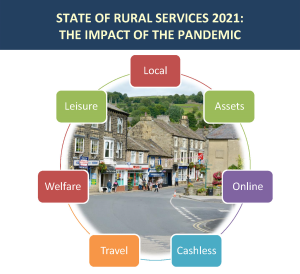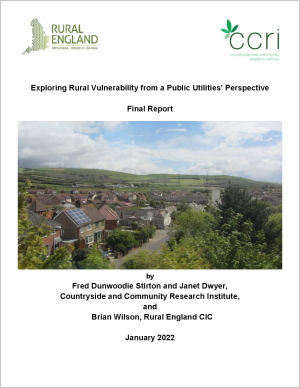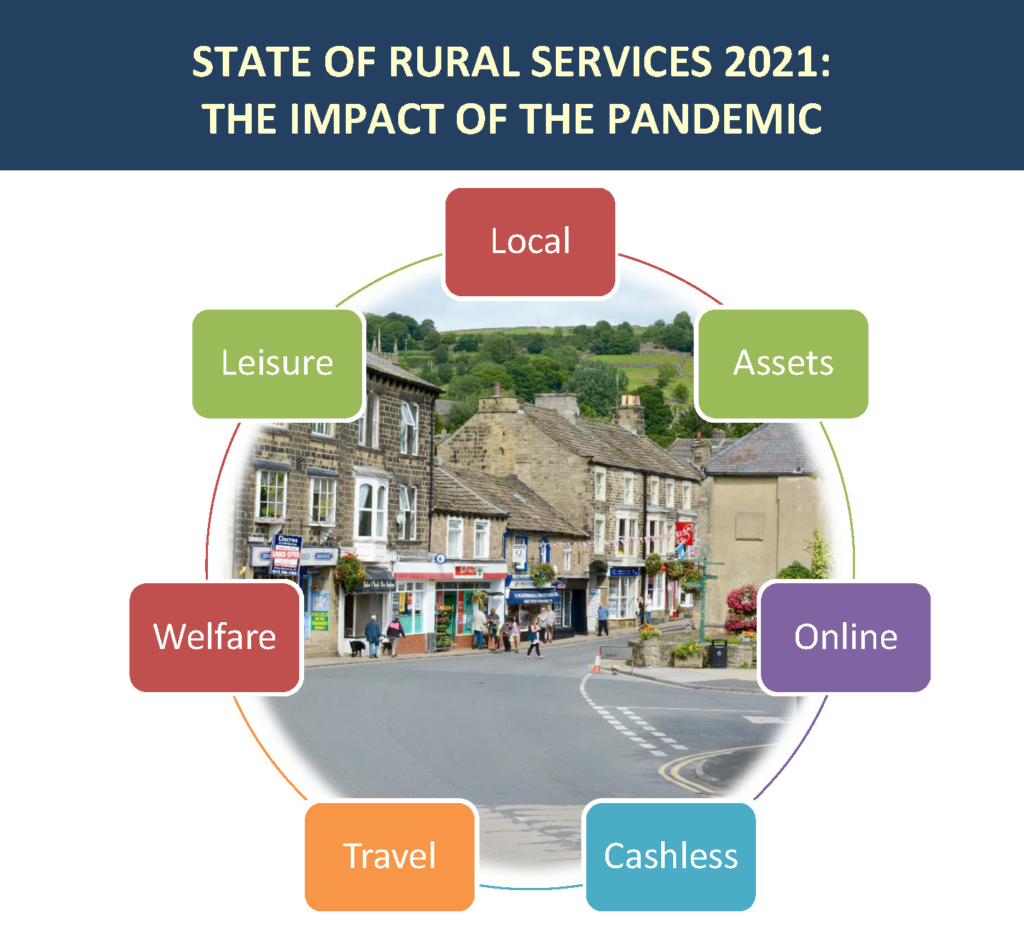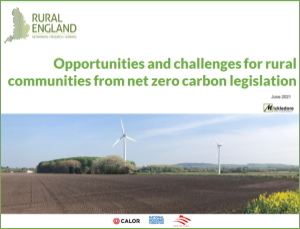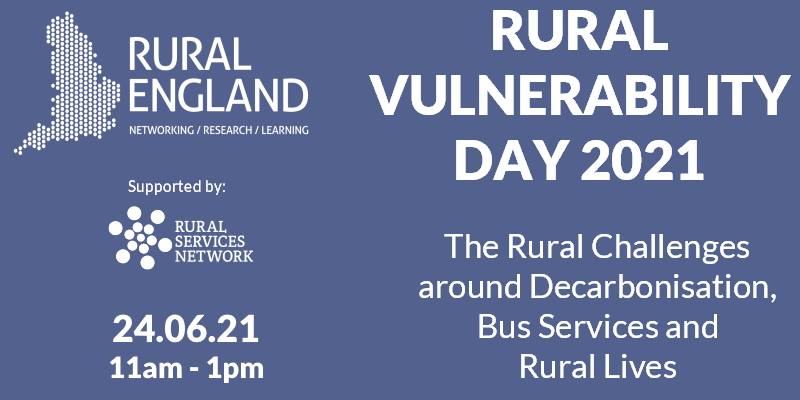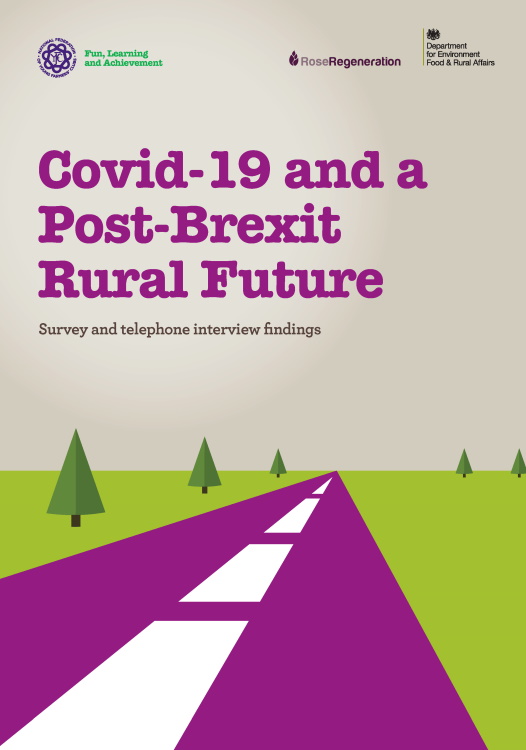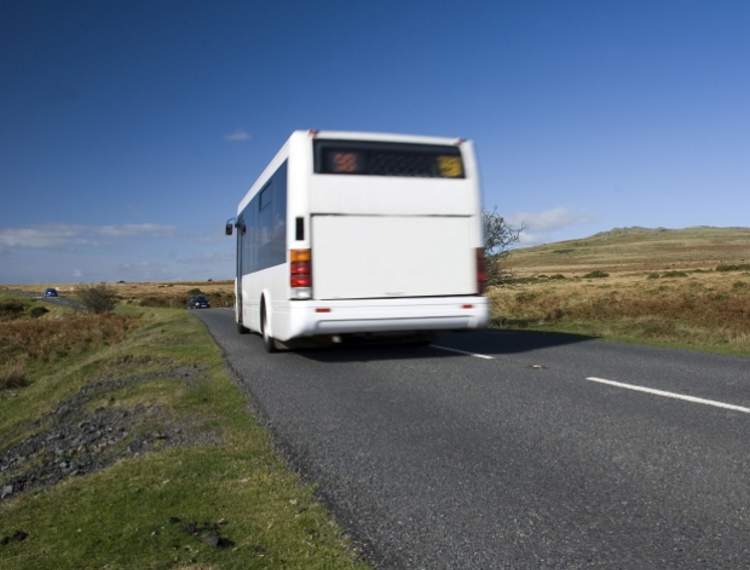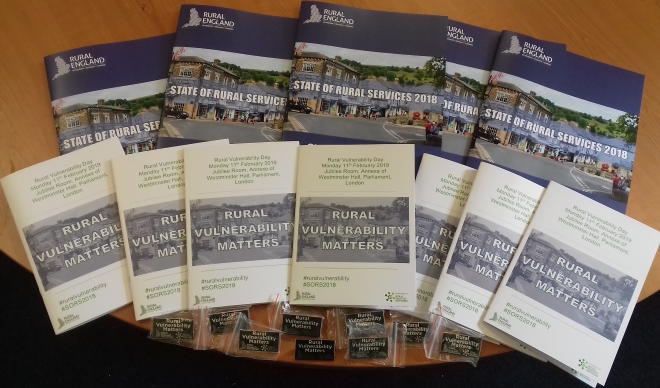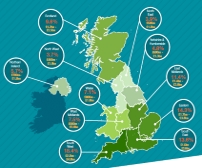SRUC – December 2025
Read moreAuthor: Richard Inman
MEETING OF THE RURAL ENGLAND STAKEHOLDER GROUP WITH HEI SECTOR – Wednesday, 29th October 2025, 10:00 – 13:30
Held on-line via Zoom
Read moreNew Report Published: The Challenges for Rural Electrification


We are pleased to share the final report of our collaborative research with NICRE: The Challenges for Rural Electrification. Conducted by CCRI, the study explores the barriers, costs, and cultural context shaping how rural households engage with electrification and low-carbon heating.
Key findings highlight that:
- Heat pumps alone are not the answer, other fuels and technologies must be part of the mix.
- Trust and clear advice are critical for household decision-making.
- Costs and disruption remain a barrier, especially for older homes.
- Community resilience and cultural identity influence choices and must be recognised in policy and programmes.
The report is designed to support policymakers, practitioners, community organisations, and researchers working toward a fair and achievable rural energy transition.
Read the full report: Rural-Electrification-Final-Report-August-2025.pdf
State of the Rural Services – The Challenges for Policy Makers

Rural England CIC has today published its latest State of Rural Services 2025 report, presenting a detailed analysis of how people living in rural areas across England access and experience key public and community services.
Drawing on national datasets and official statistics captured up to the end of 2024, the report presents an updated picture of service delivery and accessibility across areas including health and social care, transport, digital connectivity, education, and local infrastructure.
A Clear Rural Disadvantage
The findings reveal consistent and wide-ranging disparities between rural and urban areas.
- Hospital access remains harder for rural residents: 10% of rural respondents reported difficulty accessing hospital services, compared to just 3% in urban areas. The number of rural hospitals has fallen by 35% over the past 15 years.
- GP access is more challenging: 13% of rural respondents reported difficulty accessing GP services, compared to 10% in urban areas. For residents of rural hamlets and isolated dwellings, the average minimum travel time to reach a GP by public transport (where it exists) or walking is at least 57 minutes.
- Bus usage is at a historic low: In the most remote rural areas, buses account for less than 1% of journeys, with fewer supported routes and reduced frequencies.
These gaps are most pronounced in the most remote rural settings, where limited public transport, digital exclusion, and fewer service points combine to create a more challenging environment for service delivery and access.
Key Findings Across Service Areas
- Health and Social Care: There are 1,706 registered care homes in rural England, mostly in less sparse areas.
- Children and Young People: Children and Young People: Rural areas have fewer childcare places per 100 children under five, and a lower share are rated Good or Outstanding by Ofsted.
- Digital Connectivity: While gigabit broadband now reaches 54% of rural premises, 22% of isolated dwellings still cannot access even a 10 Mbps connection.
- Employment and Services: Only 13 Jobcentre Plus offices are located in rural settlements across England, limiting access for residents in more remote areas.
- Libraries: 75% of libraries are in urban areas, leaving many rural residents reliant on travel or mobile services.
Implications for Planning and Policy
The report highlights how small, cumulative disadvantages in service access can add up to significant challenges for rural people and places. It points to the importance of flexible, place-based planning and investment that takes account of distance, density, and demography.
It also observes that where services have been lost or scaled back, many communities have responded with local innovation — including community-run shops, mobile libraries, and volunteer transport schemes.
Crucially, the report distinguishes between different types of rural settlements — such as villages, hamlets, and isolated dwellings— and finds that the most remote communities face the greatest barriers.
Graham Biggs, MBE, Chair of the Directors of Rural England C.I.C said:

“This extensive research shows clearly the challenges faced by rural communities in the range of services they can receive and the difficulties they have in accessing those which are provided.
“This is the 4th ‘State of the Rural Services’ Report published by Rural England CIC (the others being in 2016, 2018 and 2021) and so a clear pattern of decline in many essential rural services can be seen. While there have been improvements in areas such as broadband and mobile connectivity, rural areas still lag significantly behind their urban counterparts.
“Rural England CIC is calling on Government, through its Mission for Change, to address the challenges faced by our rural communities and businesses”.
– The Full State of Rural Services 2025 Report is available HERE
– The Executive Summary is available HERE
– A Summary Snapshot is available HERE
MEETING OF RURAL ENGLAND CIC STAKEHOLDER GROUP AGM – Wednesday 23rd July 2025, 11am – 1pm
Held on-line via Zoom
Read moreRural Vulnerability Day 2024: A Day of Insights and Impact
Rural England C.I.C. marked this year’s Rural Vulnerability Day with two pivotal events, bringing together experts, policymakers, and parliamentary representatives to address critical issues facing rural communities. This year’s events focused on the socio-economic changes in small towns and the experiences of rural energy and water customers, alongside a comprehensive update on the State of Rural Services research currently ongoing.

Rural England C.I.C Releases In-Depth Report on Socio-Economic Challenges in Small Rural Towns

Rural England C.I.C has unveiled a comprehensive report titled “Socio-Economic Change and Challenges in Rural Small Towns.“ This pivotal research, spearheaded by Rural England, provides an exhaustive analysis of the evolving socio-economic landscape of small rural towns in England, highlighting the transformative impacts of the Covid-19 pandemic and long-standing socio-economic shifts.
Overview:
The report delves into the significant changes faced by small rural towns, historically central to agricultural, retail, and service provision for their surrounding communities. These towns have experienced profound socio-economic transformations over recent decades, with the Covid-19 pandemic and the recent cost-of-living crisis further accelerating these trends.
Key Findings:
Impact of the Covid-19 Pandemic:
- The pandemic has intensified existing socio-economic trends, disrupting local economies, retail sectors, and transportation services.
- Temporary declines in tourism and retail footfall during lockdown periods have led to permanent shifts in consumer behavior.
Government Support and Funding:
- The efficacy of major government initiatives, including the Towns Fund, Future High Streets Fund, and Levelling Up Fund, is critically examined.
- Despite their goals, these programs often exclude smaller towns, especially those with populations under 5,000, leaving many crucial rural service centers without necessary support.
Demographic and Economic Shifts:
- Small rural towns are witnessing an ageing population, with an increase in single-person households and a decline in traditional employment sectors.
- Economic diversification is essential to sustain local economies as traditional industries, particularly agriculture, continue to wane. There can be an over reliance on the seasonal, low pay and part-time working tourism and hospitality sectors which are both heavily impacted by the cost-of-living pressures recently felt.
Retail and Service Provision:
- The rise of online shopping and out-of-town retail centers has significantly impacted small town high streets, with many independent retailers struggling to survive.
- However, towns with a higher proportion of independent shops demonstrate better resilience.
- Festivals and their schedules are enabling many towns to extend the length of their tourist season.
Transport and Accessibility:
- Reductions in public transport services have exacerbated accessibility issues, affecting rural residents’ access to employment and essential services.
- Many towns are actively promoting active travel options, such as walking and cycling, to mitigate these challenges.
Environmental and Green Economy Initiatives:
- Environmental sustainability and the development of the green economy are locally prioritised in many small towns, with a focus on addressing climate change and increasing flood events.
- Attracting jobs in the green economy and promoting circular economy practices are seen as vital for long-term sustainability.
Policy Implications:
The report emphasises the need for more inclusive and targeted government policies that acknowledge the unique needs of small rural towns. Equitable distribution of resources and a nuanced understanding of rural deprivation are essential to foster sustainable development.
Future Directions:
To ensure the long-term vitality of small rural towns, the report advocates for:
- Recalibrated government support accessible to all towns, regardless of size.
- Economic diversification to counteract the decline of traditional sectors.
- Targeted interventions to address social inequalities.
- Empowerment of local communities to develop adaptive strategies for resilience.
Graham Biggs, MBE – Chair of Rural England C.I.C’s Directors said, “This is an important report prepared by Professor Martin Phillips of the University of Leicester and Rural England’s Research Director. It shows that the narrative of small rural towns is one of resilience, adaptation, and hope but that Government support is needed. The report stresses that small rural Towns serve the same economic and social purposes for the town and their hinterlands as their more heavily populated counterparts.
The new Government should consider the findings and act to recalibrate government support so that it is accessible to all towns, regardless of size. With economic diversification to counteract the decline of traditional sectors, targeted interventions to address social inequalities and the empowerment of local communities to develop strategies for resilience, these small rural towns can deliver on the hopes and aspirations of their communities.”
– Download the Full Report HERE.
– Download the Overview Report HERE.
MEETING OF RURAL ENGLAND CIC STAKEHOLDER GROUP AGM – Monday 7th October 2024, 11am – 12:30pm
This meeting was held online via Zoom
Read moreMEETING OF THE RURAL ENGLAND CIC SUPPORTERS AND RURAL ENGLAND DIRECTORS ON MONDAY 30th SEPTEMBER 2024
MEETING OF RURAL ENGLAND CIC STAKEHOLDER GROUP AGM – Monday 8th July 2024, 11am – 12:30pm
This meeting was held online via Zoom
Read moreAttracting and retaining staff in rural areas: A Toolkit for employers
Attracting and retaining workers in the Derbyshire Peak District
NOTES OF THE RURAL ENGLAND CIC STAKEHOLDERS’ GOUP WITH RURAL HEI SECTOR/UK RPPRG – Tuesday, 5th March 2024, 1pm – 4pm
This meeting was held online via Zoom
Read moreNOTES OF THE RURAL HEI SECTOR/UK RPPRG – Tuesday, 5th March 2024, 11am – 12:30pm
This meeting was held online via Zoom
Read moreCommunity Ownership : A Way Forward for Wales
Future opportunities for rural next generation
Rural England Stakeholder Group – 6th November 2023
This meeting was held online via Zoom
Read moreNFYFC Sustainable Futures report
Raising the Barriers: An Action Plan to Tackle Regional Variation in Dementia Diagnosis in England
New report sets out concerns about proposed heat pumps policy for rural off-grid properties

Rural England calls on the government to review its approach to decarbonising rural properties following new research.
A report published today by the independent rural research organisation, Rural England CIC, raises further concerns about the government’s apparent one-size-fits-all policy of requiring the installation of heat pumps in rural off-gas grid homes and businesses to a faster timetable than in homes connected to the gas grid.
Read moreRural England Stakeholder Group – 10th July 2023
This meeting was held online via Zoom
Read moreNotes of Rural England Supporters Meeting held on Monday 20th April 2023
The exclusive countryside post-pandemic
Rural Cost of Living Survey 2023
Rural England Stakeholder Group – 19th January 2023
This meeting was held online via Zoom
Read moreRural England Stakeholder Group – 10th October 2022
This meeting was held online via Zoom
Read moreThe Scope to Engage With Village and Community Agent Schemes (or similar) to Promote Sign Up to The Priority Services Register
This report outlines findings from research which sought to identify where Village Agent, Community Agent or similar schemes operate and to assess their potential for promoting sign up to the Priority Services Register (PSR) operated by utility network operators.
Read moreRural England Stakeholder Group – 11th July 2022
This meeting was held online via Zoom
Read morePoor broadband hinders resilience among rural businesses
Notes of Rural England Supporters Meeting held on Monday 26th April 2022
Report highlights the countrysides digital exclusion problem
Citizens Advice – January 2022
Citizens Advice help people get their lives back on track through advice
Read moreRural England Stakeholder Group – 20th January 2022
This meeting was held online via Zoom
Read moreState of Rural Services Report 2021
The State of Rural Services Report 2021 (published in January 2022) explores the impacts of the Covid-19 pandemic and restrictions on service provision in rural areas of England.
Read moreExploring Rural Vulnerability from a Public Utilities’ Perspective
The utilities sector has a duty to support its customers in potentially vulnerable situations, especially where they are (temporarily) left without electricity, gas or water due to a fault at the home or in the supply network.
Read more2022 Rural Vulnerability Day – Launch of State of Rural Services Report 2021
Rural England CIC launched its latest State of Rural Services Report on Wednesday 12th January with two events – one for Parliamentarians and then followed by a General Launch.
Read moreRural England Stakeholder Group AGM – 13th October 2021
This meeting was held online via Zoom
Read moreRural England Stakeholder Group AGM – 12th July 2021
This meeting was held online via Zoom
Read moreOpportunities and challenges for rural communities from net zero carbon legislation
It is widely recognised that urgent action at scale is required to address the growing climate emergency and a momentum is building behind the policies and strategies being developed to take the UK towards its statutory target of becoming a net zero country by the year 2050.
Read more2021 – Parliamentary Rural Vulnerability Day
Meeting of the Rural England CIC Supporters and Rural England Directors – 22nd April 2021
Notes from the Rural Vulnerability Research Panel held on 24th March 2021
Rural England Stakeholder Group AGM – 14th January 2021
This meeting was held online via Zoom
Read moreNew research reveals pandemic and Brexit implications weigh heavy on rural youth
Rural England Stakeholder Group AGM – 15th October 2020
This meeting was held online via Zoom
Read moreNotes from the Rural Vulnerability Research Panel held on 29th September 2020
Notes of Rural England Supporters Meeting held on Monday 20th July 2020
Rural England Stakeholder Group AGM – 7th July 2020
This meeting was held online via Zoom
Read moreImportant information for vulnerable utility customers
Utility Companies – April 2020
Utility Companies providing Gas, Electricity and Water all keep Priority Services Registers, this is a free service provided by suppliers and network operators and each maintain their own register.
Read more#LevelUp FE – Remote learning offers an opportunity for rural FE colleges
Rural Services Network and Young Somerset – April 2020
by Graham Biggs and Nik Harwood
Article published at ![]()
Recently we’ve been examining the challenges that rural pupils face in accessing further education and training. Since then, the country has faced unprecedented disruption from the coronavirus outbreak. Frontline workers are rightly focusing on saving lives and stemming the spread of the virus. But the crisis has also thrown into the spotlight an issue which we have been campaigning on for years: rural connectivity.
Read more#LevelUp FE – Poor transport links compound the disadvantages rural young people face
Rural Services Network and Young Somerset – March 2020
by Graham Biggs and Nik Harwood
Article published at ![]()
Paying to learn – an unacceptable situation
Last week, to mark Rural Vulnerability Day 2020, we argued that despite its rhetoric, the Government is not doing enough to ‘level-up’ further educational opportunities for young people in rural areas.
Read more2020 – Parliamentary Rural Vulnerability Day

We were pleased to host the 2020 Parliamentary Rural Vulnerability Day which took place in Portcullis House on 10th March 2020.
Read moreEquipping the younger generation with the opportunities they need to flourish in even the most rural and isolated areas
Rural Services Network and Young Somerset – March 2020
by Graham Biggs and Nik Harwood
Article published at ![]()
#LevellingUp The British Countryside – We’re not doing enough to make it the greatest place in the world to grow up
Read moreRural England Stakeholder Group meeting with the UKRPPRG – 16th January 2020
16th January 2020 at the Warwick Business School suite, The Shard, London
Read moreNotes from the Rural Vulnerability Research Panel held on 15th January 2020
Challenges facing rural 16-18 year olds in accessing appropriate education and work based learning
This research looks at the challenges facing 16-18 year olds living in rural areas in accessing appropriate opportunities for education and work based learning. It also considers the possible implications of accessibility constraints on students’ attainment and on social mobility.
Read moreNotes of Rural England Stakeholder Group meeting – 18 June 2019
Housing and Employment: A Survey of Rural Residents’ Experiences and Opinions
Housing and Employment: A Survey of Rural Residents’ Experiences and Opinions (published June 2019) is a summary of the key findings from a survey managed by CCRI (University of Gloucestershire) and supported by Rural England.
Read moreNotes of Rural England Supporters Meeting held on 30 April 2019
2019 – Parliamentary Rural Vulnerability Day
State of Rural Services Report 2018
State of Rural Services 2018 report (published February 2019) presents the most recent evidence regarding the provision of services to residents and businesses in rural England.
It covers 8 service areas, which are: Local buses and community transport, Broadband and mobile connectivity, Public library services, Hospitals, Public health services, Young people’s services, Shops and online shopping and Personal advice services Read more
Notes of Rural England Stakeholder Group meeting – 3 December 2018
Rural England Stakeholder Group meeting with the UKRPPRG – 5 November 2018
Rural England Stakeholder Group Meeting – 4 June 2018
People should be brought to the centre stage to deliver more environmental and social benefits
Research Report – Unlocking the digital potential of rural areas across the UK
Unlocking the digital potential of rural areas – Research Infographic
Report Launch Press Release – 12.03.18
Greater digital adoption in rural areas could add £12 to 26 billion a year to the UK economy says new report. Read more
Rural England Stakeholder Group Meeting – 5 February 2018
2018 – Parliamentary Rural Vulnerability Day
Rural England CIC launched the findings from its latest research paper on ‘Issues Facing Providers of Social Care to Older Residents’.
Alongside Rural Services Network, they are aware of the growing concerns about vulnerability felt by some people in rural areas, particularly as reductions in services and support take place. Both organisations wish to see such issues and their impacts properly thought about and planned for. Read more
Issues Facing Providers of Social Care at Home to Older Residents in Rural England
In this research we examine the issues facing providers of domiciliary care to older people in rural areas. Whilst there has been a considerable amount of recent research about social care, specifically rural dimensions have generally been overlooked Read more
Initial Findings Press Release – 11.12.17
Rural businesses see digital technology as key to growth but face skills and training barriers Read more
Rural England Stakeholder Group Meeting – 4 December 2017
UK Rural Policy and Practitioners Research Group Meeting – 4 December 2017
Rural England Stakeholder Group Meeting – 6 November 2017
Digital adoption…
Rural England Stakeholder Group Meeting – 11 July 2017
Research Press Release – 23.07.17
Rural England and Scotland’s Rural College Launch Consultation on How to ‘Unlock Rural Britain’s Digital Potential’ Read more
Meet the research team
A team from Rural England CIC and SRUC, led by Brian Wilson, are collaborating on this project. Read more
Rural England Stakeholder Group Meeting – 5 June 2017
Rural communities benefit from YFC challenges
Vote for Worth Valley YFC’s land art project
Ticket to Ride – Transport as a Main Problem in Rural Life
Health and wellbeing in rural areas
Rural England Stakeholder Group Meeting – 6 February 2017
National Federation Of Young Farmers’ – Increased Farm Productivity
Rural England Stakeholder Group Meeting – 5 December 2016
UK Rural Policy and Practitioners Group Meeting – 5 December 2016
The State of Rural Services 2016 Report
The State of Rural Services 2016 report (published January 2017) presents the most recent evidence regarding the provision of services to residents and businesses in rural England.
It covers nine service areas, which are: local buses and community transport, welfare services, access to cash, further education, the retail sector, mental health services, older people’s services, public health services and community assets. Read more
Analysis of characteristics of Scotland’s rural economies
A crisis of place – Are we delivering sustainable development through local plans?
Rural England Stakeholder Group Meeting – 7 November 2016 (AGM)
The State of Rural Services 2016 – Local Buses and Community Transport
Local Buses and Community Transport is the first chapter of nine which will form the State of Rural Services Report 2016 (published in full later on in the year).
The State of Rural Services 2016 project presents the most recent evidence regarding the provision of local bus services and community transport to residents and businesses in rural England. Read more

